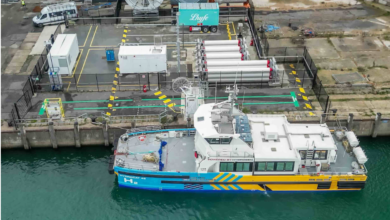Aviation H2 starts purchasing test engines
Aviation H2 is acquiring engines to test its hydrogen-powered jet tech in the next four to six weeks.

Aviation H2 continues to progress toward having Australia’s first hydrogen-powered plane in the sky by mid-2023, with the company due to acquiring test engines for modification in the next four to six weeks.
Its strategic partner and specialist charter flight operator FalconAir is currently making sure those engines meet Aviation H2’s requirements.
While the test engines will not be used for flight testing, they will be invaluable for the company to prove its technologies and that liquid ammonia can continue burning.
However, before the company can modify the test engines, it will embark on a newly introduced preliminary testing phase.
This will involve the construction of a tubular combustion chamber that will allow the company to control airflow and fuel. This will help the company fully understand the parameters that have to be in place on the engine to make sure the liquid ammonia-powered flame burns steadily.
This phase will allow Aviation H2 to make decisions about the fuel mix configuration – and other decisions – which it will then use to modify the test engines.
Aviation H2’s aircraft of choice, the Dassault Falcon 50 business jet – a long-ranged international business charter jet aircraft – was selected for many reasons.
These aircraft have a larger weight capacity, reducing the risk posed by weight challenges, they are also relatively common in Australia with partner Falcon Air being certified to maintain and operate them.
However, one of the main reasons is that the third engine of the Falcon 50 is located at the bottom of the plane’s back.
This provides easy access to the engine simply by opening the cowl, allowing the company to tinker and fine-tune the setup without too much difficulty.
Falcon 50s can also fly using just two engines, meaning that while Aviation H2 won’t be able to test the plane in the area surrounding Bankstown Airport, it can take off on the two regular engines and fly to where it is will carry out the testing.
He added that working out of Bankstown airport would help with the work needed to develop the technology, as it has the right infrastructure to carry out the modifications.
Bankstown is also the base for Falcon Air, who are familiar with the plane and have all certifications in place, meaning that Aviation H2 only needs experimental permissions to operate the plane.
Once the test flight is successful in the middle of 2023, Aviation H2 will have a patentable method for modifying aircraft so they operate on carbon-free fuel. They will quickly seek to certify and commercialise this product via a planned public listing on a major exchange in Q4 of 2023.
